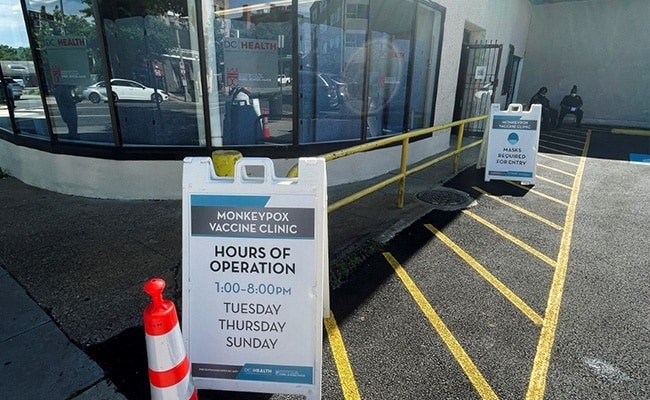| Translate This News In |
|---|
The United States designated the monkeypox outbreak a public health emergency, potentially improving access to financing for health agencies and opening up new avenues for the government to increase manufacture and use of current vaccinations.
The action follows the World Health Organization’s July pronouncement. According to Reuters, there have been over 25,800 cases worldwide, with three deaths confirmed in countries other than Africa.
How risky is it?
The virus, which was discovered in monkeys, is primarily transmitted through close contact with an infected individual. It often produces mild symptoms such as fever, rash, enlarged lymph nodes, and pus-filled skin sores. According to the WHO, severe cases might occur, although patients usually recover in two to four weeks.
Anyone can carry the virus, but the present outbreak outside of Africa is virtually entirely among males who have sex with men.
Monkeypox spreads mostly through personal skin-to-skin contact, generally with someone who has an active rash, as well as contact with contaminated clothing or bedding. It is not as easily transferred as the SARS-CoV-2 virus that caused the COVID-19 epidemic.
Why is this an emergency?
The US expects that declaring a public health emergency will aid in the containment of the disease before it becomes endemic. This position frees up financing and provides regulatory freedom to health organisations, which could assist boost access to vaccines and treatments.
Health officials from numerous nations petitioned the WHO to declare monkeypox a public health emergency of worldwide concern due to the rapid increase of cases and concerns that it could become endemic in more countries.
The declaration of an emergency aims to drive worldwide action and collaboration on everything from testing to the development and delivery of vaccinations and treatments.
Previous monkeypox outbreaks in Africa of the strain presently spreading had a fatality rate of roughly 1%, but this outbreak appears to be less harmful in non-endemic nations, many of which have stronger healthcare facilities. Until this year, the viral disease had very rarely travelled outside of its endemic region in Africa.
Scientists are investigating what caused the early outbreaks and whether the virus has evolved. According to researchers, increased worldwide travel and climate change have accelerated the creation and spread of viruses.
According to infectious disease experts, years of financial neglect have left sexual health clinics on the frontlines of the current monkeypox response ill-prepared to stop the disease’s spread.
Safety precautions
According to health professionals, people should avoid close physical contact with anyone who has an illness that manifests as a characteristic rash or who is otherwise ill. People who fear they have monkeypox should isolate themselves and seek medical attention.
Monkeypox vaccines are also being distributed to high-risk persons and those who have recently had close contact with an infected person.
Bavarian Nordic, a Danish business, sells a vaccination under the brand names Jynneos, Imvamune, or Imvanex, depending on where you live. It is approved in the United States and Europe for the prevention of both smallpox and the closely similar monkeypox.
ACAM2000 is an older vaccination now manufactured by Emergent Biosolutions, however its use has been limited due to a serious side-effect warning.
Bavarian Nordic claims it can produce 30 million doses of its vaccines, including the monkeypox vaccine, each year and has partnered with a US-based contract producer to enhance monkeypox vaccine capacity.
Treatment
Monkeypox symptoms usually go away on their own after a few weeks. Patients may require more fluids and therapy for subsequent bacterial infections.
SIGA Technologies’ tecovirimat, marketed as TPOXX, has been approved in the United States and the European Union for smallpox, as well as monkeypox and cowpox.


















